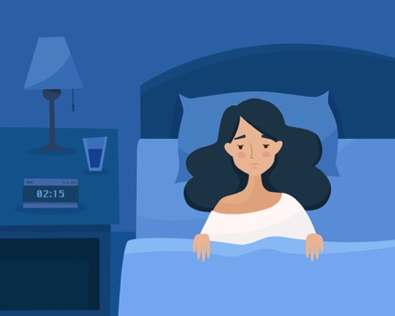Published: 03 August 2022
By Secure Minds Psychology (Copyright Secure Minds Psychology)
We’ve all been there before, it’s 11:50 pm, you need to wake up first thing in the morning and for some pesky reason, you can’t seem to shake the same repetitive thoughts about your day.
Here are some tips to switch off from these thoughts and help you fall asleep!
An hour or 2 before bed try the following:
- Sit down at a clear desk with a paper and a pen. Identify your problematic thoughts and write them down. By taking the time to acknowledge your thoughts, your mind will feel less driven to flood you with the same thoughts over and over again.
- Identify the central concerns and the common themes. Similarly, this will help contain these thoughts.
- Ask yourself: is the concern solvable or unsolvable? – If the problem is solvable (something you can address right away), refer to the next step. If it is unsolvable (outside of your control to action in the moment), acknowledge this out loud and write down: “this concern is out of my control.” Labelling the thought could also help you process it.
- If the problem is solvable: write down the next If you are unsure of what the next action is, it could simply be a matter of talking to someone to help you figure out what the best next action will be.
- Schedule in time to complete the next action and acknowledge that it is a concern for my ‘future self’ to contend with.”
Bonus tips:
- Don’t watch the clock: frequently checking the time during the night can cause rumination, such as “I can’t get to sleep”.
- Avoid caffeine 4-6 hours before bed: caffeine increases alertness and therefore can lead to overthinking when we want to sleep.
- Relaxation techniques: breathing exercises, stretches or drinking non-caffeinated tea helps the body relax and will then cause the mind to follow.
Sleep is very important. Hopefully, some of these tips will help you. If you find that you are struggling, know that you can reach out to your GP for support and they may be able to recommend a counsellor or psychologist to support you.

